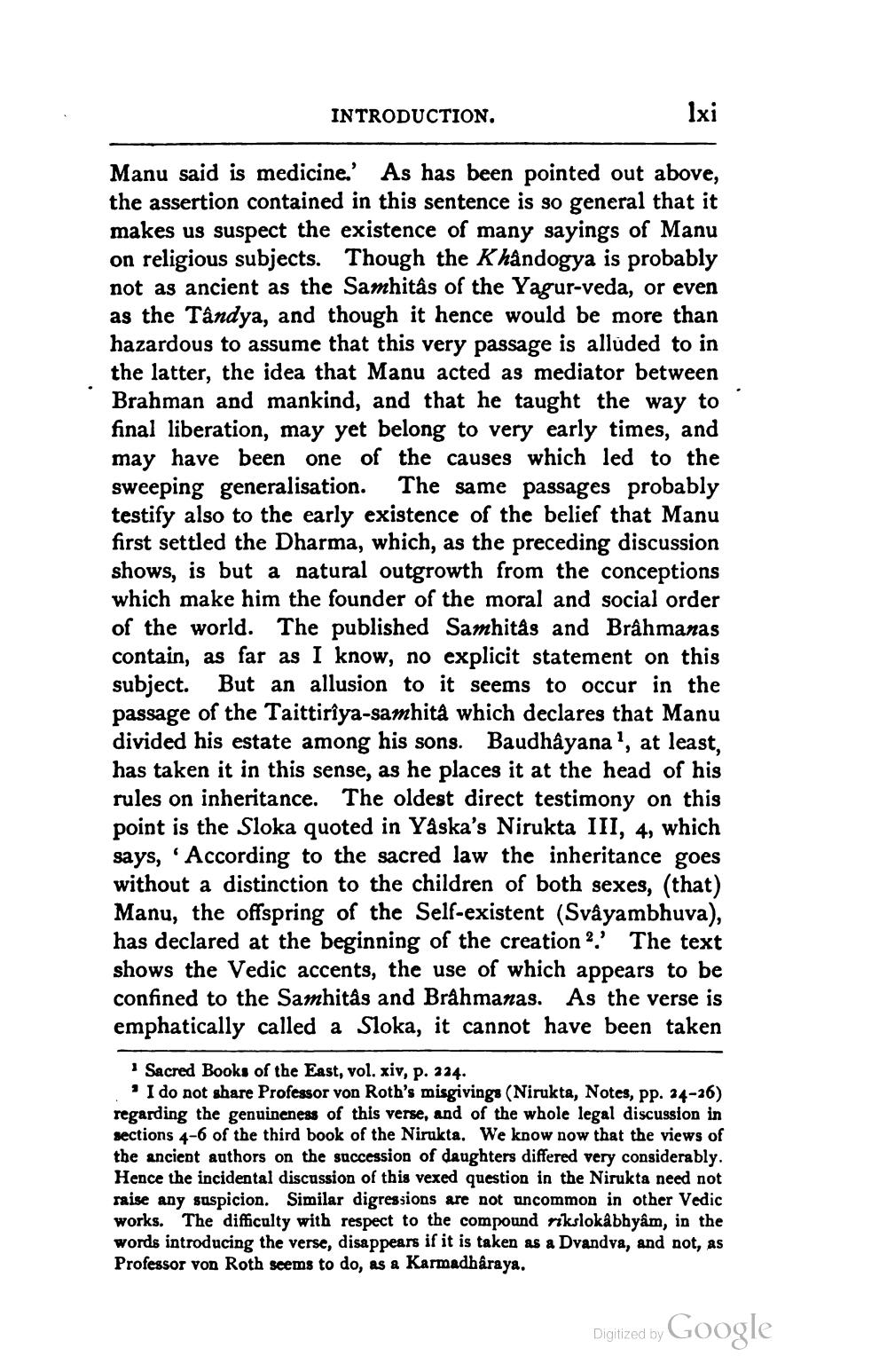________________
INTRODUCTION.
Ixi
Manu said is medicine.' As has been pointed out above, the assertion contained in this sentence is so general that it makes us suspect the existence of many sayings of Manu on religious subjects. Though the Khândogya is probably not as ancient as the Samhitâs of the Yagur-veda, or even as the Tandya, and though it hence would be more than hazardous to assume that this very passage is alluded to in the latter, the idea that Manu acted as mediator between Brahman and mankind, and that he taught the way to final liberation, may yet belong to very early times, and may have been one of the causes which led to the sweeping generalisation. The same passages probably testify also to the early existence of the belief that Manu first settled the Dharma, which, as the preceding discussion shows, is but a natural outgrowth from the conceptions which make him the founder of the moral and social order of the world. The published Samhitas and Brahmanas contain, as far as I know, no explicit statement on this subject. But an allusion to it seems to occur in the passage of the Taittiriya-samhita which declares that Manu divided his estate among his sons. Baudhayana !, at least, has taken it in this sense, as he places it at the head of his rules on inheritance. The oldest direct testimony on this point is the Sloka quoted in Yaska's Nirukta III, 4, which says, 'According to the sacred law the inheritance goes without a distinction to the children of both sexes, (that) Manu, the offspring of the Self-existent (Svayambhuva), has declared at the beginning of the creation?' The text shows the Vedic accents, the use of which appears to be confined to the Samhitås and Brâhmanas. As the verse is emphatically called a Sloka, it cannot have been taken
Sacred Books of the East, vol. xiv, p. 224. 'I do not share Professor von Roth's misgivings (Nirukta, Notes, pp. 34-36) regarding the genuineness of this verse, and of the whole legal discussion in sections 4-6 of the third book of the Nirukta. We know now that the views of the ancient authors on the succession of daughters differed very considerably. Hence the incidental discussion of this vexed question in the Nirukta need not raise any suspicion. Similar digressions are not ancommon in other Vedic works. The difficulty with respect to the compound rikslokábhyâm, in the words introducing the verse, disappears if it is taken as a Dvandva, and not, as Professor von Roth seems to do, as a Karmadharaya.
Digitized by Google




